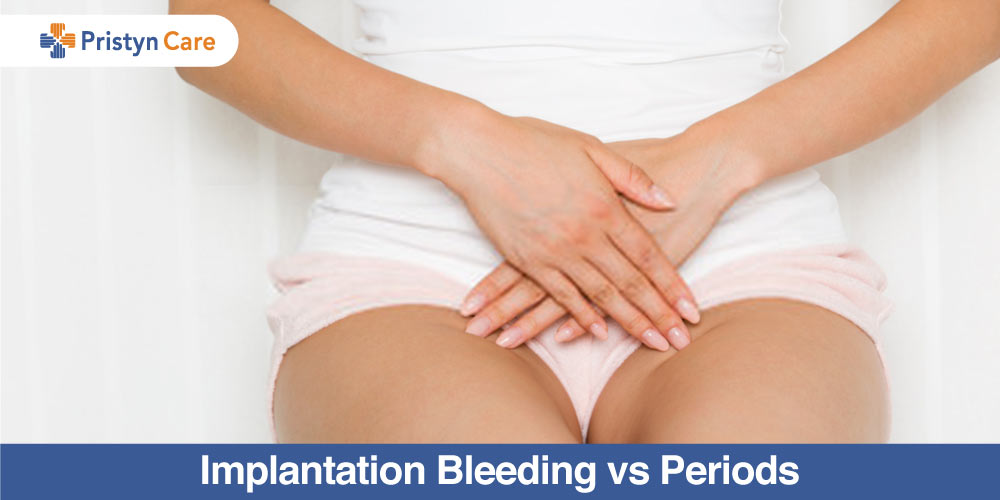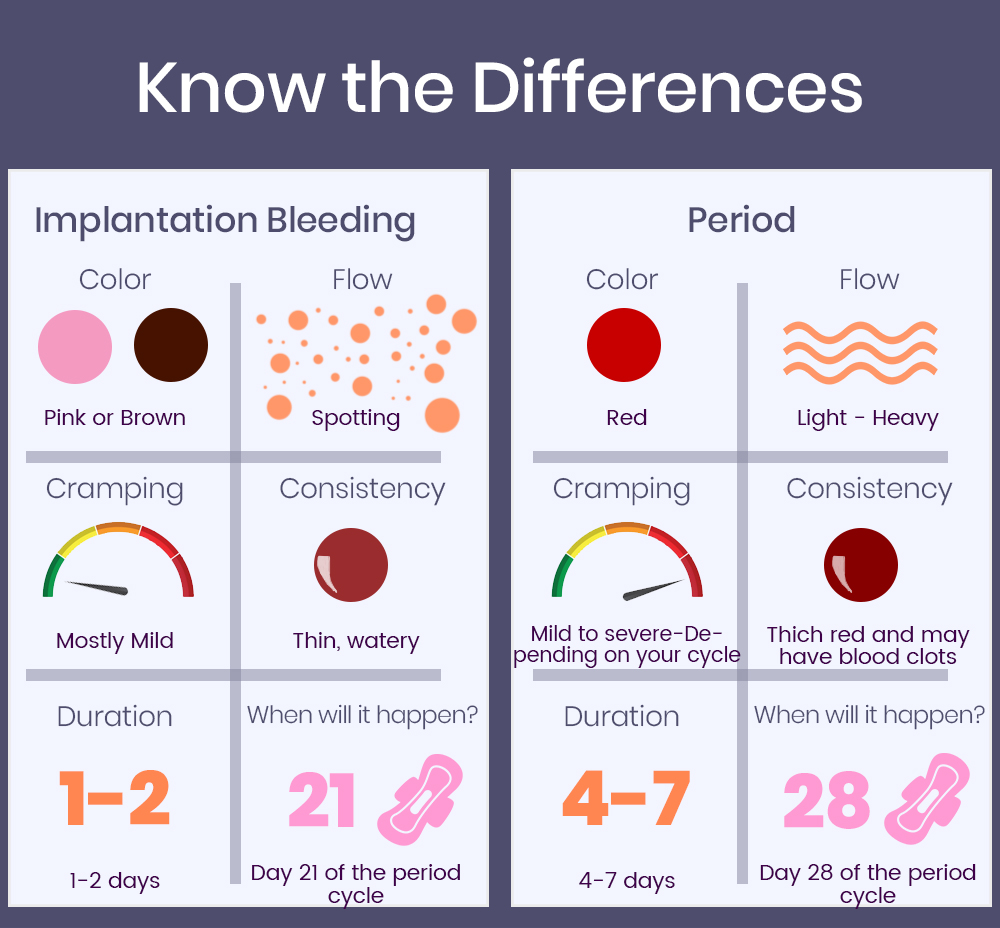
Implantation bleeding is the spotting that happens when the fertilized egg implants itself to the uterine wall. Sometimes, you can confuse this spotting with regular periods or spotting between period cycles. However, both are different.
Implantation bleeding occurs anywhere from 10 – 14 days after the fertilization and happens just a few days before the expected period date. It is fairly common and about one-third of pregnant females experience it.
Implantation bleeding is not a sure sign of pregnancy. It is normal for a female to have spotting between periods. Due to that, implantation bleeding is not the sure-shot confirmation of pregnancy.
What should you do if you think you have implantation bleeding? Your next steps, in this case, should be taking a home pregnancy test kit or visiting a gynecologist to confirm pregnancy. The gynecologist might do a urine test or blood test to confirm pregnancy.
Also Read- What does Spotting instead of the Period Indicate?
Know the difference between implantation bleeding and periods or spotting
Below are some guidelines that can help you determine whether the blood on your underwear is implantation bleeding, an early sign of pregnancy or whether it is your regular period (which can also be irregular periods- spotting between period cycles).
- Timing of implantation bleeding- Implantation bleeding occurs 6 to 14 days after conception. It generally happens just before the expected period date.
- Implantation bleeding has less blood- Typically, only a small amount of blood is released when the embryo implants itself to the endometrium. Which means you will notice a lot less blood in case of implantation bleeding. Implantation bleeding has only a little spotting or staining, which is a lot less compared to the flow of blood in case of a regular period. Also, during periods, blood flow generally increases on day 2 or 3. But in case of implantation bleeding, the female will notice very less blood, just like spotting even on day 2 or 3. Also, note that the amount of blood generally does not increase in the case of implantation bleeding.
- Implantation bleeding has brown or pink color, rather than red- Because the quantity of blood is very less in implantation bleeding, its dilution by the cervical and vaginal secretions will give it a brownish or pinkish color. Bright red blood is indicative of the bloodshed by the endometrial lining of the uterus, which is much more intense than the fertilized egg implants itself on the uterine wall.
- Implantation bleeding marks less intense cramping- While implantation can cause cramping, females experiencing implantation typically feel less intense cramping. And that too for a very short while, as compared to periods which can come with more intense and lengthier cramping. While these signs vary from female to female, a female who normally experiences cramping during periods can differentiate between the two through the intensity of cramping in each.
- Implantation bleeding has intermittent flow- Typically, on day 1 female’s period, the period flow or the flow of period blood is light, and it continues to increase around day 2 or 3. But, in case of implantation bleeding, the female will have very little flow for 2-3 days after which she may experience the first signs of pregnancy, like tender breasts, morning sickness (nausea) or stomach upset.

How long does implantation bleed last?
Implantation bleeding usually lasts 1-3 days. But, a female can experience implantation bleeding for a few hours to up to 3 days.
Also Read- Implantation Bleeding- Causes, Symptoms and Treatment
Some early signs of pregnancy
Implantation bleeding is one of the earliest signs of pregnancy. After implantation bleeding, there are some other signs of pregnancy occurring due to increasing hormones in the body. Other early signs of pregnancy after implantation bleeding can include-
- Missed period
- Swollen, tender, or fuller breasts
- Mood swings
- Headache
- Breast pain
- Nausea or morning sickness
- Food cravings or aversions
- Extreme tiredness
- Dizziness
- Weakness or faintness
- Constipation
- Increased body temperature
It is common to get confused between periods and implantation bleeding. So if you too, are experiencing a spotting and are confused about your health, we suggest you consult a gynecologist immediately.
Pristyn Care offers gyne-consultation both online and offline. To book an appointment, please call us directly or fill our book my appointment form from our/ site.
Also Read-
Negative Home Pregnancy Test after Missed Period







